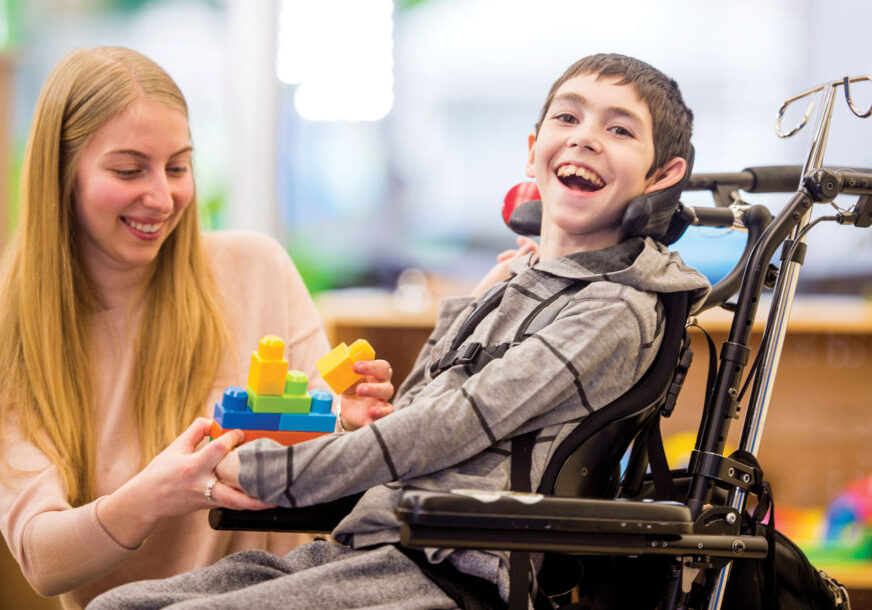Myths About ADHD
When I tell people my son has ADHD, or attention deficit hyperactivity disorder, I usually get polite nods or “I have that too. I could never pay attention in school.” So few people understand what ADHD means, and myths are rampant.
These are just some of the most common misunderstandings parents of ADHD children battle.
Myth #1 – ADHD is someone’s fault
Reality – ADHD isn’t anyone’s fault. It isn’t caused by an excess of sugar or television watching or a lack of discipline. ADHD causes children to struggle with focus and self-control.
Myth #2 – ADHD isn’t really a big deal
Reality – Quoting the ADHD Awareness website, if undiagnosed and untreated, ADHD can contribute to “problems succeeding in school and successfully graduating, problems at work, problems with relationships, more driving citations and accidents, problems with overeating and obesity, and problems with the law.” This is really a big deal because people with ADHD are quickly drawn to what is immediately stimulating and entertaining and have difficulty looking ahead towards the consequences or rewards.
Myth #3 – ADHD is just a lack of focus
Reality – People with ADHD often will hyperfocus on anything stimulating and entertaining, such as video games and TV. A therapist once described to me the mindset of ADHD as—ME. FUN. NOW. If it’s fun, they will be focused, to the point of unawareness of anything else around them.
Myth #4 – ADHD is a learning disorder.
Reality – ADHD often contributes to a learning disorder but is not itself a learning disorder. And, many ADHD children, including my son, will never exhibit any sign of learning difficulties.
Those in close relationships with ADHD children should be aware that mood disorders such as anxiety and depression, and behavioral disorders such as obsessive compulsive disorder (OCD) and oppositional defiant disorder (ODD) may often be diagnosed with ADHD. But for many children, their ADHD might not accompany any other diagnoses, but is apparent in their behavior and struggle to organize and focus on a given task or form relationships because of their constant inattentiveness.
Myth #5 – Parents of ADHD children medicate their children because they want a quick fix.
Reality – Medicating children can be a hot-button issue, and everyone seems to have an opinion. We chose to medicate our son because, after trying everything from dietary changes, herbal remedies, and stricter routines, we felt it was the only option left.
I can only explain the benefits through my son’s own words, “When I don’t take my medicine, it’s like I can’t not move. My legs feel like they have to move.” My brother, diagnosed with ADD, or attention deficit disorder, as an adult, also describes the experience. “Without medication, my brain is [like] static, or a radio signal where you can hear the song, but the signal is weak. I tend to get hyperfocused on the wrong things. With medication, my brain has a clearer signal. I feel more able to prioritize the right things.”
Helping others understand ADHD
Since myths about ADHD are so widespread, it’s important to help others understand ADHD. It’s a challenge, but understanding more about it yourself and being willing to educate others is a step in the right direction. My son’s creativity never ceases to amaze me. His mind is always whirling, imagining how he would recreate something to make it better. I believe he might be a great inventor someday or a video game programmer. Whatever my son becomes, I will do my best to encourage him along that path and try not to worry so much about whether he remembers to put on his socks.
Posted in: Special Needs
Comment Policy: All viewpoints are welcome, but comments should remain relevant. Personal attacks, profanity, and aggressive behavior are not allowed. No spam, advertising, or promoting of products/services. Please, only use your real name and limit the amount of links submitted in your comment.
You Might Also Like...

Red Bluff’s Big Splash Project – Creating An Inclusive Place For Children Who Love The Water
Sidelined by the pandemic, and now back on track Over the last year, the COVID-19 pandemic has taken a tremendous toll on local businesses and community endeavors, and The Big […]

Dealing with Unsolicited Advice When Raising Kids with Disabilities
If you’re a parent, chances are you’ve gotten unsolicited advice from family, friends, and even strangers. If you’re raising a child with special needs, you’ve probably had people chime in […]

Prescription Pets and Therapy Dogs
Prescription Pets Therapy Dogs Program – Redding, CA The healing power of pets It’s a well-known fact that animals can be therapeutic. Animals not only connect with people in a […]

What Exactly IS ADHD?
October is ADHD Awareness Month — a good opportunity to learn more about this often misunderstood condition. ADHD stands for attention-deficit/hyperactivity disorder. It’s a condition that is common in all […]

It’s Not Your Garden Variety Of Theatre Fun – Little Red Hen’s Summer Program for Children and Teens with Autism
The aptly named Not Your Garden Variety (NYGV) Theater in Chico is geared for children and teens with autism. Currently running as a six-week summer program, participants ages 4 to 17 […]


